Have you ever wondered how inflation impacts your nest egg if you rely on set monthly income, like bonds or retirement pay?
Inflation, a measure of the economy’s overall price increases, can significantly affect people who depend on fixed-income instruments.
This article will break down complicated financial jargon into simple terms to illustrate how inflation affects fixed-income earners and provide practical strategies for mitigating its effects.
Stay tuned for some insightful economic nuggets that could help safeguard your future!
Key takeaways
●Inflation makes things cost more. This is hard for fixed-income earners because they do not make more money.
●High inflation can lead to high-interest rates. These rates make loans like homes or cars cost more.
●Older bonds may lose value during high inflation times. Newer bond yields with higher returns might be a better deal.
●To keep their money safe during these times, people can buy TIPS, gold, real estate, fast-growing stocks, and company bonds.
How Does Inflation Affect Fixed Income Earners
Inflation is like a big wave. It makes the costs of things go up over time. This means you need more money to buy the same stuff. Think about buying candy.
One year it costs $1, but next year it may cost $1.10 because of inflation.
That’s not good!
Sometimes, people have jobs where they make more money when there is inflation. But other times people have jobs with “fixed income.”
This means they make the same amount of money every month or year no matter what happens with prices for things like food or rent.
Inflation usually comes around when we’re doing really well as a country and everyone has lots of work to do (this is called “economic strength”). But too much can be a problem—it’s hard for everyone when bread or gas gets too pricey!
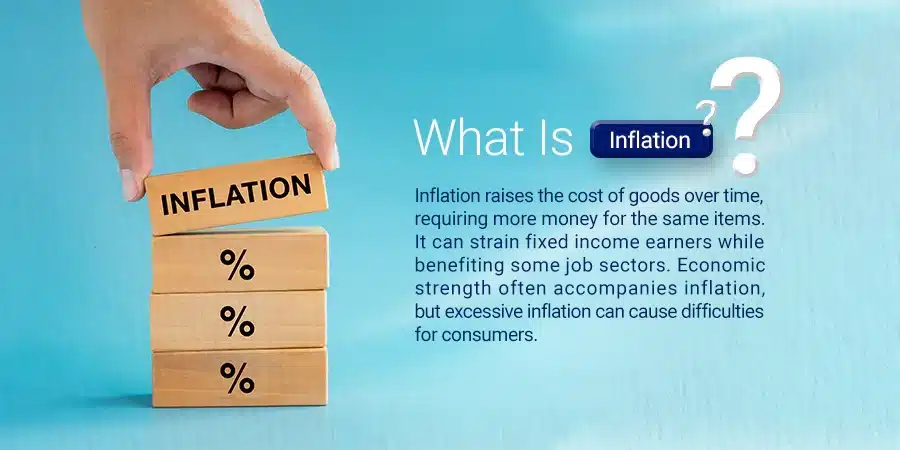
- Stimulates spending
- Reduces real debt
- Promotes growth
- Allows wage adjustments
- Fosters investment
- Erodes purchasing power
- Causes uncertainty
- Harms fixed incomes
- Distorts price signals
- Increases business costs
- Wealth inequality
- Hyperinflation risk
How Inflation Impacts Fixed Income Earners
Inflation can significantly impact fixed-income earners by eroding their purchasing power, mainly because their income remains steady while the cost of goods and services increases.
The interplay between inflation and interest rates is crucial here; high inflation often leads to increased interest rates that could affect the real vs. nominal returns on investments for these individuals.
More so, Fixed-income earners bear a considerable inflationary risk as they wrestle with uncertainty over future purchasing power due to unchecked inflation rate trends.
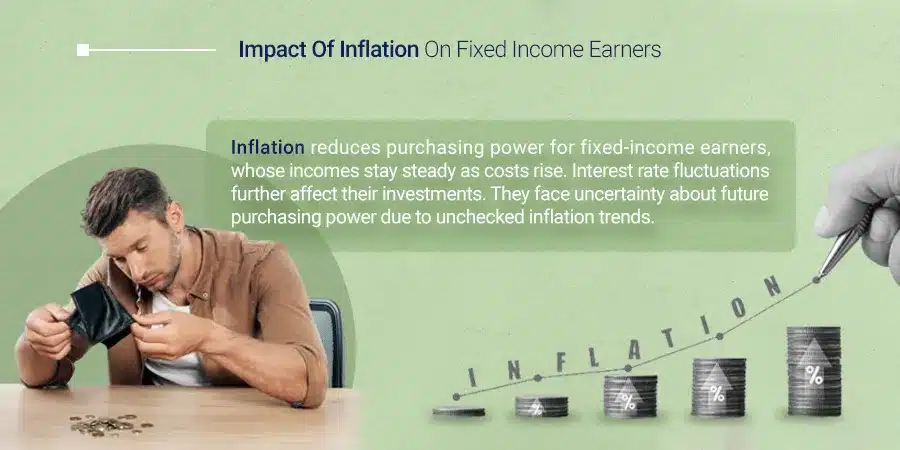
Inflation and Interest Rates
Inflation and interest rates go hand in hand. High inflation pushes up fixed interest rates. Central banks, like the U.S.
Federal Reserve, do this to slow down growth and curb rising prices. This is because more people save their money when interest rates are high.
For fixed-income earners, higher interest rates can be tough. It means loans for things like homes or cars cost more.
Their bills grow but their pay stays the same. It’s harder to plan for future costs with the changing inflation rate.
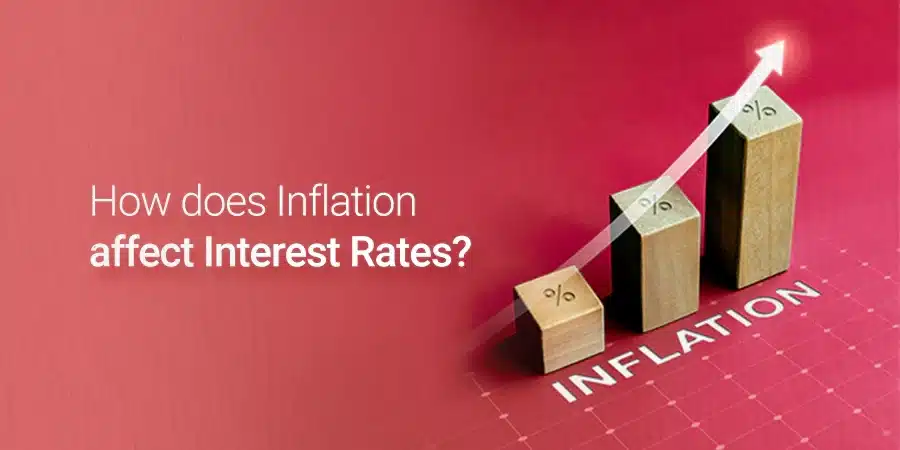
Inflationary Risk
Inflation risk can hurt those who are in low-income households. It is when the cost of things gets higher but wages stay the same. This means you can’t buy as much with your money.
For example, if you have $100 and a loaf of bread costs $1, you could buy 100 loaves.
But if the price of bread doubles due to inflation, that same $100 will only get you 50 loaves. A high rate of inflation makes it hard for people who live on a fixed income because they cannot stretch their money as far.
This risk is stronger when there is economic strength as this often leads to more demand and thus higher prices.
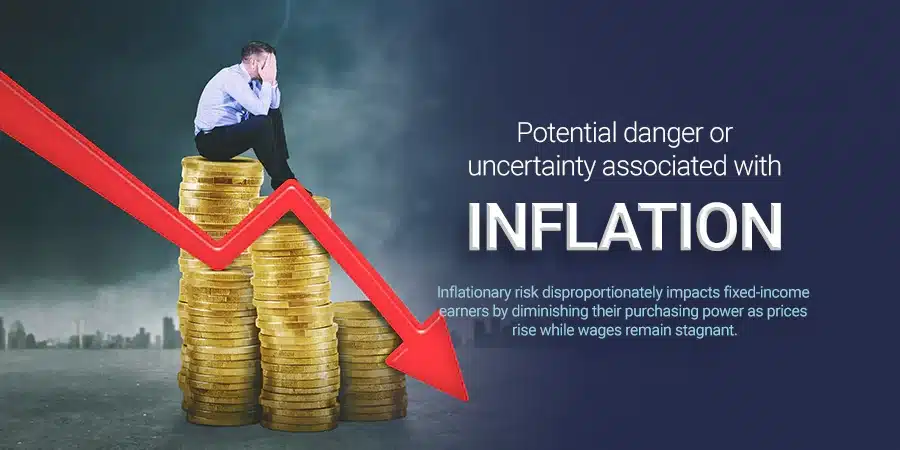
Real vs. Nominal Returns
To understand how inflation can eat away at your investment returns, it’s important to differentiate between nominal and real interest rates. But real and nominal returns are not the same.
The return you get on your money is the nominal return. It is just a number, say 5%. But inflation can eat into this return.
For example, if prices go up by 2%, your real return is only 3%. This is because inflation takes away some of your buying power.
Even though you have more money, you buy less stuff because prices go up. Inflation is the general increase in prices and decreases in the purchasing power of money.
So always think about real returns when saving or investing.
How Inflation Affects Fixed Income Investments
Inflation can profoundly impact fixed-income investments, such as municipal bonds and certificates of deposit (CDs), due to the intricate inverse relationship between interest rates and bond prices.
To delve deeper into how inflation can erode the real value of your fixed-income investments over time, continue reading this article.
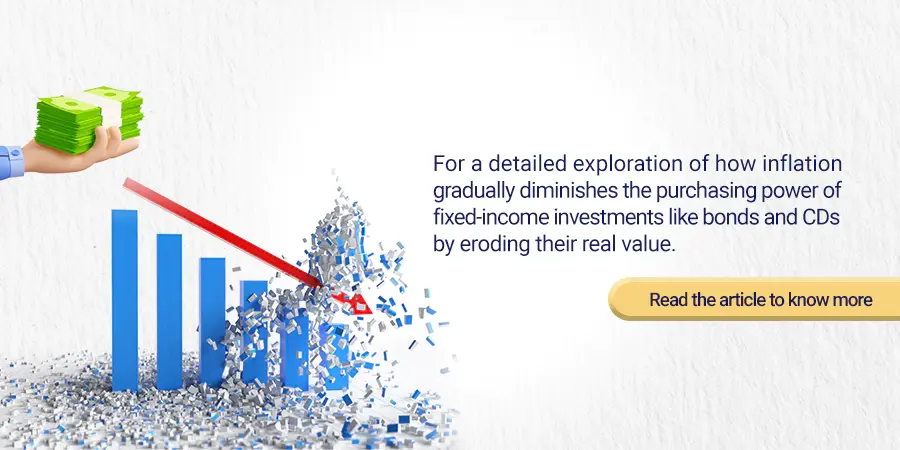
The Inverse Relationship Between Interest Rates and Bond Prices
Interest rates and bond prices share a special link. This link is often called an inverse relationship. It means that if one goes up, the other goes down.
Think about it like a see-saw at the park. One child weighs more than the other. Now imagine that the heavier child is on one side of the see-saw – this represents rising interest rates due to inflation.
The lighter child – representing bond prices – will rise into the air as interest rates go up.
So, when central banks boost interest rates, bonds in your portfolio may lose value or drop in price! Why? It’s quite simple: new bonds coming into the market would pay higher coupon rates because of rising interest rates.
These are more attractive to investors than old ones with lower returns.
Bonds with longer lifespans face greater risks from inflation too. Their fixed payments won’t stretch as far when the cost of living rises over time.
Impact of Inflation on Bonds and Other Fixed-Income Securities
Inflation impacts bonds and other fixed-income assets. When prices rise, the worth of the income from these asset classes falls.
This hits bond investors hard as they get less real rate of return from their investment. This decrease in real return makes the bond less attractive to investors, leading to a decrease in bond prices.
Here is how it works. Let’s say you buy a bond that pays 3% every year. If inflation is at 2%, your real return is just 1%. In short, high inflation eats up the money you earn from bonds and similar assets.
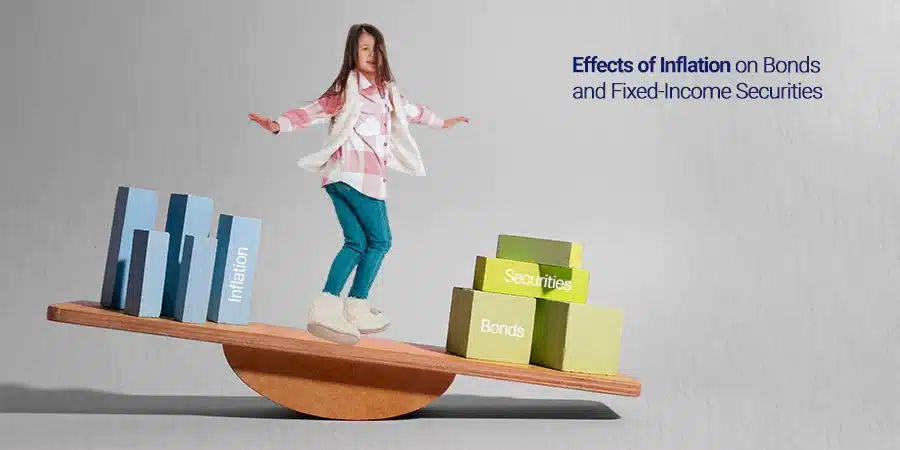
Mitigating Inflation Risks for Fixed Income Earners
Discover practical strategies for mitigating the financial impact of inflation on fixed-income earners, from diverse investment options to strategic rate considerations.
Read on to understand how you can safeguard your earnings during inflationary times.
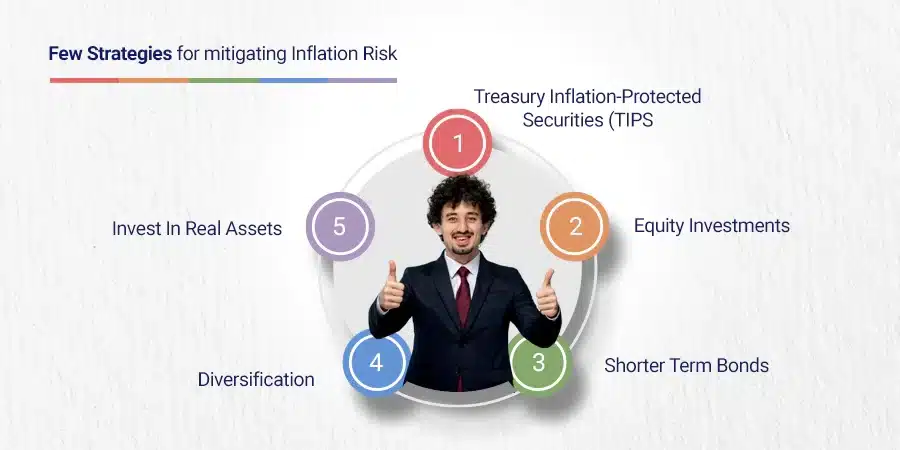
Investment Options During Inflationary Times
There are many ways to keep your money safe when the cost of things goes up. Here are some ideas:
- Buy Treasury Inflation-Protected Securities (TIPS). This kind of bond changes with inflation. If costs go up, so does the value of TIPS.
- Think about Series I Savings Bonds. These bonds also adjust according to inflation rates.
- Look into gold and other consumer goods. The price of these items can go up when inflation rises.
- Consider real estate as an option too. The prices of houses often rise during inflationary times.
- Keep an eye on stocks that may grow fast in value, called growth stocks.
- You might want to look at buying company bonds. But be careful; sometimes their prices tend to fall when interest rates rise.
- Try investing in Mutual Funds or Exchange-traded funds (ETFs). They spread your risk across many types of assets.

As their name suggests, they do not have fixed interests attached to them. The interest rates on these funds are revised based on the increase or decrease of interest rates which are in turn driven primarily by inflation.
Considering Short-term vs. Long-term Rates
Think about short-term and long-term rates. Both are important. Short-term rates can be good when the effects of inflation are high. These rates don’t tie up your money for too long.
This makes it easy to move your money if better options show up. Longer-term bonds work differently though. They are at risk when there’s a lot of inflation, says Fact One.
High inflation means higher central bank rates, according to facts two and four. This cuts the value of bond income from fixed coupons, as we learn from fact three.
Also, new bonds could have better returns than old ones during high inflation times – see fact five! So think well before you pick between these two rate types.
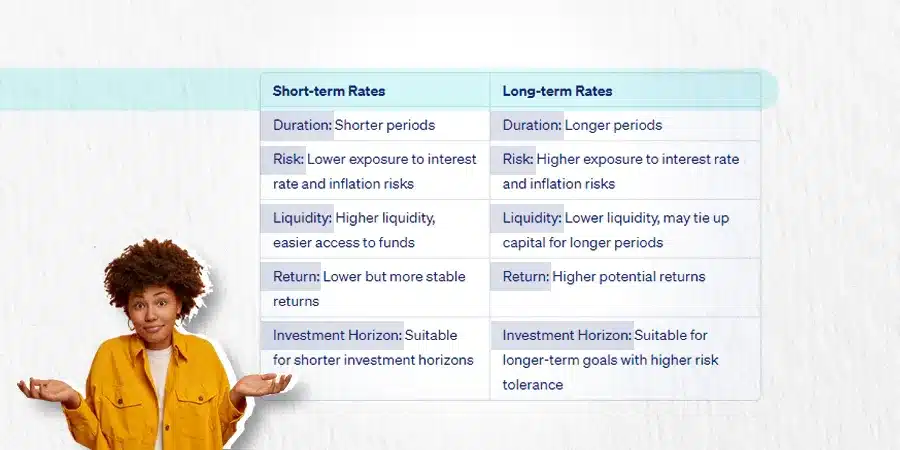
Conclusion
When prices go up, it hurts people who earn a fixed income. Things cost more but they do not make more money. This can be hard for them.
To deal with this, they may need to look at other ways to use their money or save. The only way to work around these factors is to identify instruments that act as a hedge against inflation.
Additionally, investing in assets with long-term maturities such as long-term bonds can help protect against inflationary pressures as they are less likely to be affected by short-term market volatility.
Investors can also take exposure to assets like equity which tend to beat inflation over the long term. .
FAQs
Inflation means when prices for goods and services go up. When the cost of things goes up, people with the fixed-income investment like seniors or retirees might find it hard to buy what they need.
High inflation can hurt the bond market. This is because as prices rise, the real value of interest payments from bonds goes down. So, government bonds or corporate bonds may not be worth as much.
Yes, buying things like gold could help protect your wealth during times of high inflation. These are known as “inflation hedges”. They hold their value even when money buys less.
The stock market can act differently under high inflation. Some stocks might go up in price since companies raise their costs to make more money.
To protect against rising prices, diversification is key! You can invest in a mix of cash, stocks, and debt mutual funds among others based on your risk profile for portfolio optimization.
Economic indicators like the Consumer Price Index (CPI) or Producer Price Index (PPI) give hints about future rises in costs. These numbers tell us if things are costing more or less for consumers and manufacturers.








